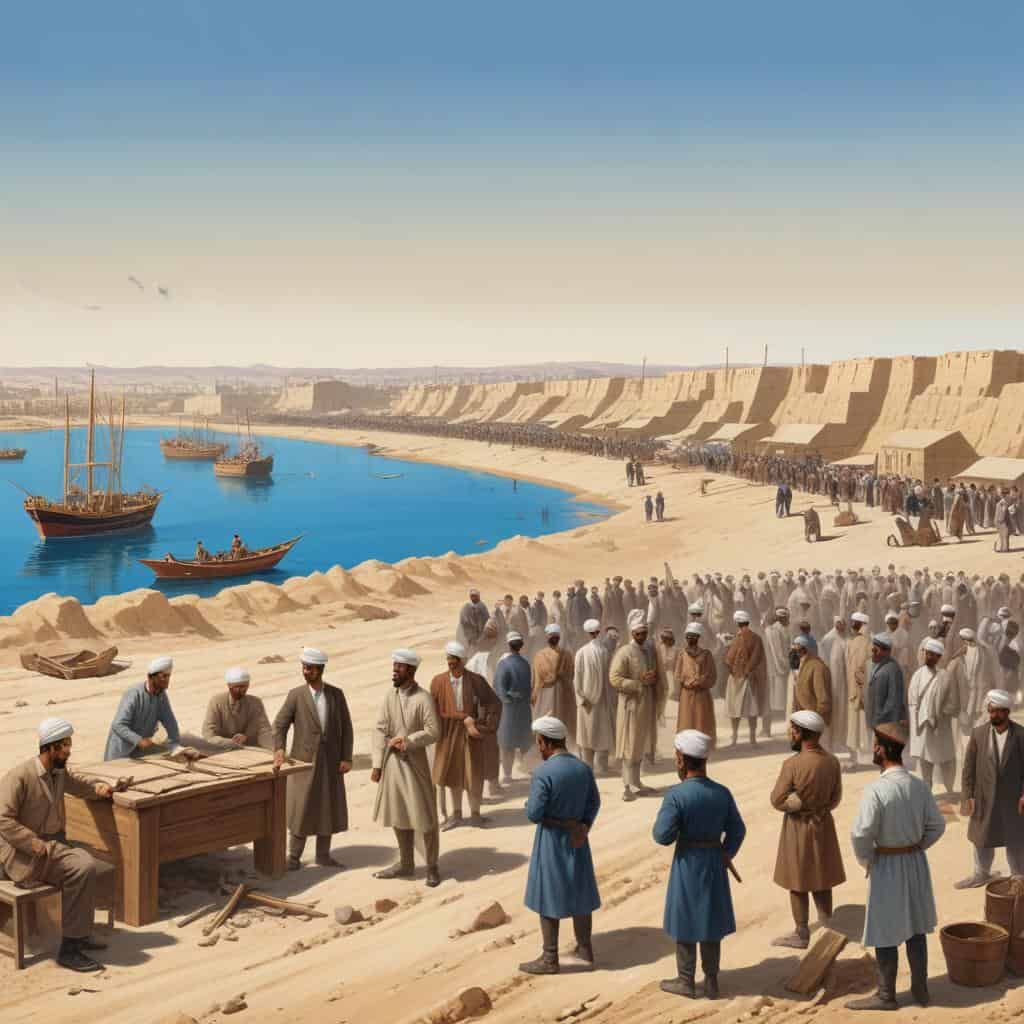Ottoman Egypt was a province of the Ottoman Empire located in North Africa. It was an important region due to its strategic location and rich resources. The Ottomans ruled Egypt from the early 16th century until the early 20th century. The province played a crucial role in the trade routes between Europe and Asia. Egypt was also known for its cultural and economic significance during the Ottoman period.
Summary List
- The Ottoman Empire ruled Egypt from 1517 to 1798.
- Ottoman Egypt was a major agricultural producer, known for its cotton and grain.
- The Ottomans built many important structures in Egypt, including mosques, schools, and palaces.
- The Mamluks, who were powerful slave soldiers, were influential in Ottoman Egypt.
- Napoleon Bonaparte invaded Egypt in 1798, leading to the end of Ottoman rule in the region.
Games And Apps
Learning Modules
Siege of Cairo (1249)
In 1249, the Siege of Cairo unfolded as the Crusaders attempted to conquer the city, led by Louis IX of France. The battle was fierce and bloody, with both sides suffering heavy casualties. The outcome of the siege would have far-reaching consequences for the future of the region.
I Want To Learn This!Battle of Marj Dabiq (1516)
The Battle of Marj Dabiq in 1516 was a pivotal conflict between the Ottoman Empire and the Mamluk Sultanate of Egypt. With strategic maneuvers and fierce fighting, the Ottomans emerged victorious, solidifying their control over the region and reshaping the balance of power in the Middle East.
I Want To Learn This!Revolt of the Egyptian Mamluks (1705)
Revolt of the Egyptian Mamluks (1705) tells the gripping story of a rebellion led by the Mamluk military caste against their Ottoman rulers in Egypt. Fueled by power struggles and resentment, this historical event explores the complexities of loyalty, betrayal, and the fight for independence in the 18th century.
I Want To Learn This!Invasion of Napoleon Bonaparte (1798)
In 1798, Napoleon Bonaparte led a daring invasion of Egypt, aiming to disrupt British trade routes and establish French dominance in the region. Facing fierce resistance from the Ottoman Empire and Mamluk forces, Napoleon's campaign would ultimately end in defeat, but his military genius would forever shape history.
I Want To Learn This!Muhammad Ali’s Modernization Reforms (1805)
Muhammad Ali, the Ottoman governor of Egypt, implemented a series of modernization reforms in 1805. These reforms aimed to modernize Egypt's military, economy, and administration, bringing the region into the modern era. Ali's efforts laid the foundation for Egypt's future development and transformation.
I Want To Learn This!Greek War of Independence (1821)
The Greek War of Independence (1821) was a historic uprising against Ottoman rule, marking a significant moment in Greek history. Fueled by nationalistic fervor and a desire for autonomy, Greek revolutionaries fought bravely for their freedom, ultimately leading to the establishment of an independent Greek state.
I Want To Learn This!Egyptian-Ottoman War (1831)
The Egyptian-Ottoman War of 1831 was a conflict that arose between the forces of Muhammad Ali Pasha, the Ottoman viceroy of Egypt, and the Ottoman Empire. This war marked a significant turning point in the power struggle between Egypt and the Ottoman Empire, leading to a complex and bloody conflict that reshaped the political landscape of the region.
I Want To Learn This!Construction of the Suez Canal (1859)
The construction of the Suez Canal in 1859 was a monumental engineering feat that connected the Mediterranean Sea to the Red Sea, drastically reducing travel time between Europe and Asia. This project revolutionized global trade and transportation, forever changing the landscape of international commerce.
I Want To Learn This!Urabi Revolt (1879)
The Urabi Revolt of 1879 was a pivotal moment in Egyptian history, led by Colonel Ahmad Urabi to protest British and French influence in Egypt. The revolt ultimately led to a violent confrontation with foreign powers and a shift in power dynamics in the region.
I Want To Learn This!British Occupation of Egypt (1882)
In 1882, the British Empire began its occupation of Egypt, sparking a tumultuous period of colonial rule and resistance. The occupation would have far-reaching consequences for Egypt's political, social, and economic landscape, shaping the country's future trajectory and igniting nationalist sentiments among its people.
I Want To Learn This!Dinshaway Incident (1906)
The Dinshaway Incident of 1906 was a historic event in Egypt where British soldiers clashed with Egyptian villagers over a pigeon hunting dispute. The incident marked a turning point in Egypt's struggle for independence and fueled anti-British sentiments across the country.
I Want To Learn This!Egyptian Revolution (1919)
The Egyptian Revolution of 1919 was a pivotal moment in the country's fight for independence from British colonial rule. Sparked by widespread discontent and led by figures like Saad Zaghloul, the revolution ultimately resulted in Egypt gaining limited self-governance and set the stage for future political movements.
I Want To Learn This!












